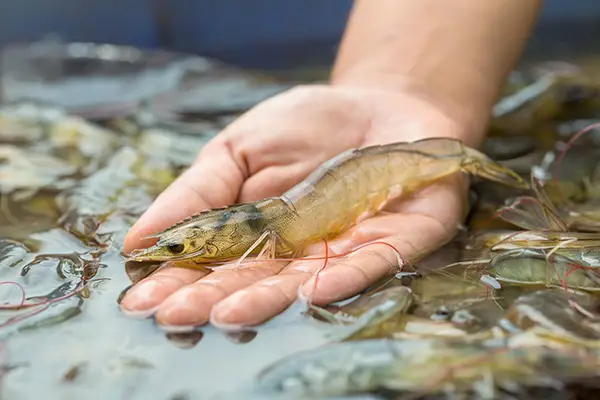Genics, an Australian biotech firm, has released an advanced technology for the early detection of shrimp diseases. The Shrimp MultiPath2.0 is capable of accurately identifying 18 shrimp pathogens in a single test, setting a new standard for certainty and safety in the aquaculture industry. This innovative technology not only provides highly accurate detection of various diseases but also distinguishes between genetic subvariants of major pathogens, ensuring comprehensive protection for farmers.
Early Detection for Proactive Disease Management
According to Genics, the Shrimp MultiPath2.0 acts as an early warning system, alerting farmers to the presence of pathogens weeks before any visible signs of illness appear in their animals. This proactive approach is invaluable in preventing costly stock losses and maintaining the health of the aquaculture environment. For farmers, this technology holds economic benefits as well. In the case of infectious hypodermal and hematopoietic necrosis virus (IHHNV), the Shrimp MultiPath2.0 can significantly increase farm gate value by up to US $52,000.00 per hectare. Additionally, for devastating pathogens like white spot syndrome virus (WSSV) and IMNV, the technology has the potential to save entire harvests, sparing farmers from substantial financial setbacks.
Comprehensive and Swift Detection
The technology is capable of detecting a broad spectrum of pathogens, focusing on the most economically damaging. This comprehensive, targeted approach enables farmers to defend against the most critical disease threats efficiently. Additionally, the Shrimp MultiPath2.0 includes control tests that validate the integrity of DNA and RNA in every sample, setting the bar higher than industry standards. This precision is particularly crucial for shrimp, which contain PCR inhibitors like chitin.
Support Responsible Seafood Practices
After learning about the advancements in shrimp disease detection, consider supporting the Global Seafood Alliance (GSA) in its mission to advance responsible seafood practices through education, advocacy, and third-party assurances. By becoming a GSA member, you’re ensuring that all of the pre-competitive work the organization does through member benefits, resources, and events can continue. Individual membership costs just $50 a year, and by joining, you are supporting the evolution of responsible seafood practices and gaining access to a vast network of contributors.
Rapid On-Site Diagnostic Tool for Disease Management
In addition to the Shrimp MultiPath2.0, there are other advancements in disease management within the aquaculture industry. A portable device with accompanying polymerase chain reaction assays can quickly identify the markers of acute hepatopancreatic necrosis disease in shrimp, water, live feed, or other sources. Timely detection of the disease’s pathogenic Vibrio etiological agent plays a critical part in disease management, and this on-site diagnostic tool aims to minimize economic losses caused by the disease.
By supporting these advancements in disease detection and management, you are contributing to the overall health and sustainability of the aquaculture industry.
Conclusion
The advancements in shrimp disease detection and on-site diagnostic tools mark significant progress in the aquaculture industry. By embracing these technologies and supporting organizations like the Global Seafood Alliance, we can ensure the responsible and sustainable practices within the industry. With the ability to detect a wide range of pathogens, deliver swift results, and provide secure, verified quantitative data, these advancements set a new standard for certainty and safety in aquaculture. Let us continue to support and invest in the evolution of responsible seafood practices for a healthier, more sustainable future.

